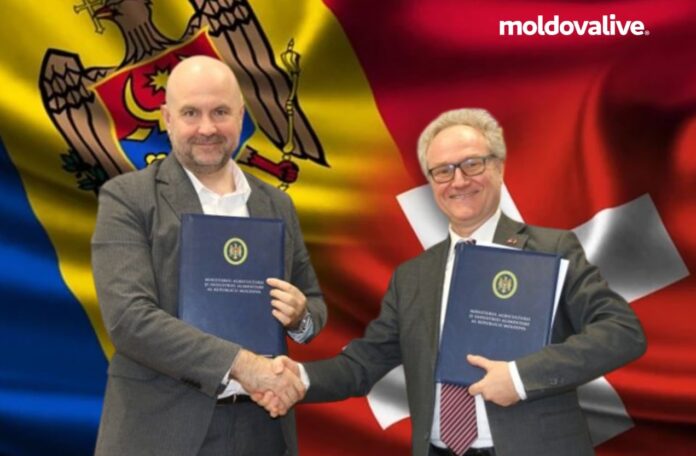The Swiss government is actively contributing to the advancement of economic opportunities in Moldova with the signing of an Agreement for the second phase of the Opportunities through Technologies and Innovation in Moldova (OPTIM) project. This collaborative effort between the Ministry of Agriculture and Food Industry (MAIA) and the Swiss Agency for Development and Cooperation (SCD) was formalized in Chisinau on February 13th.
Switzerland has allocated approximately six million Swiss francs (equivalent to 6.1 million euros) to support the implementation of the OPTIM project. Agriculture Minister Vladimir Bolea emphasized the project’s significance in revolutionizing the agricultural sector by providing farmers with access to essential knowledge, resources, and technologies to mitigate climate-related risks. Minister Bolea also highlighted the importance of integrating the OPTIM project into the organizational structure of Agricultural Chambers and emphasized the creation of specialized programs benefiting women in agricultural value chains.
Key objectives of the project include fostering inclusive economic opportunities, enhancing the competitiveness of Moldova’s private sector through investments in innovative businesses, services, technologies, and educational solutions. Additionally, the project aims to facilitate access to high-value markets and skilled labor, while promoting collaboration between the public and private sectors to stimulate innovation and market growth.
FOR THE MOST IMPORTANT NEWS, FOLLOW US ON TWITTER!
Guido Beltrani, Director of the Swiss Cooperation Office in Moldova, underscored the project’s focus on leveraging new technologies to create opportunities for Moldovan citizens. He emphasized the role of agricultural innovations in improving productivity, reducing costs, and enhancing the quality of agricultural products. Beltrani highlighted the potential for Moldovan farmers to cultivate high-quality products, increase their incomes, and access lucrative markets with the support of OPTIM-backed innovations.
Since its launch in 2019, the OPTIM project, supported by Switzerland, has facilitated the adoption of innovative practices such as drone-assisted fertigation, advanced soil testing techniques, and weather monitoring. These initiatives have optimized agricultural inputs and strengthened cooperation within value chains. Going forward, the project aims to bolster job creation, implement mechanisms to support essential services for the private sector, and assist in the formulation of policies to enhance the business environment in the agro-food sector.


